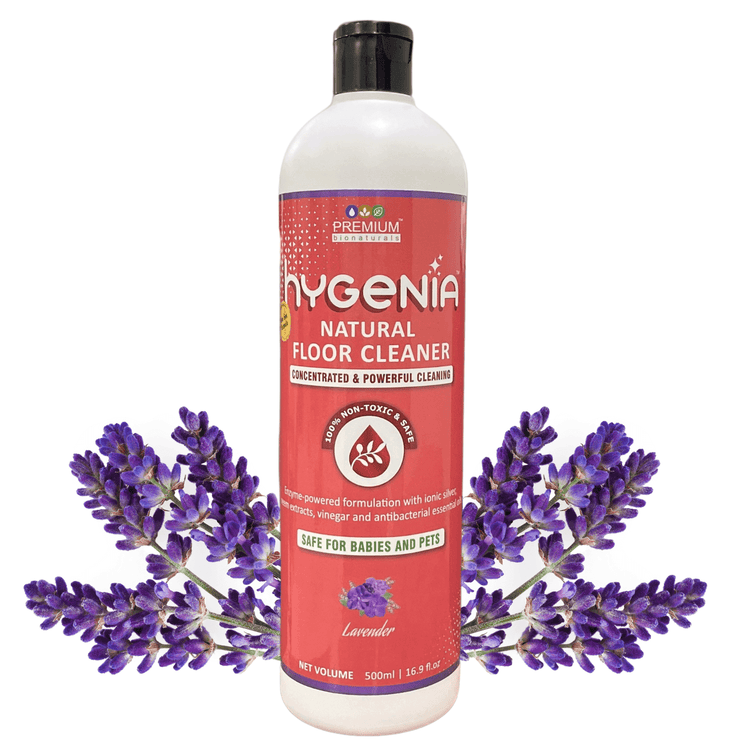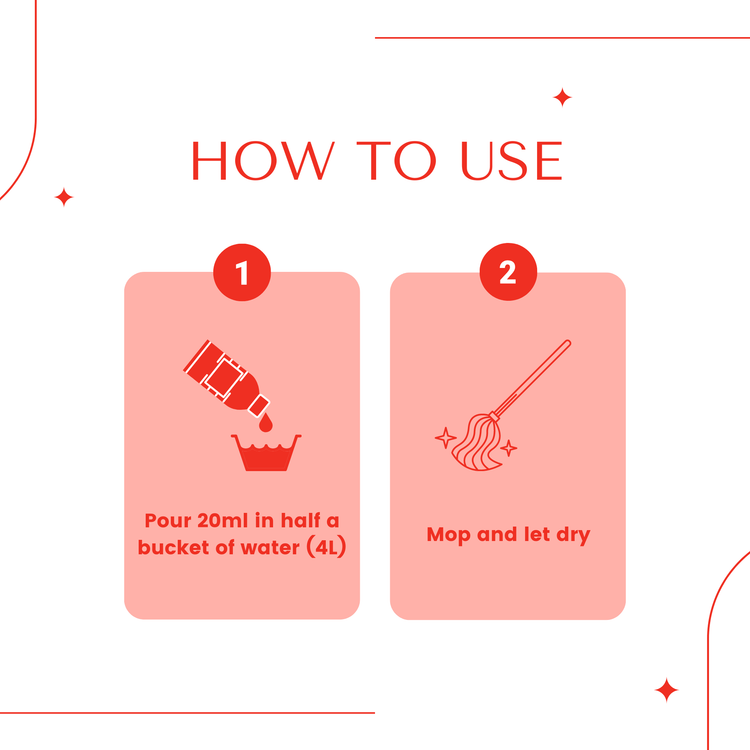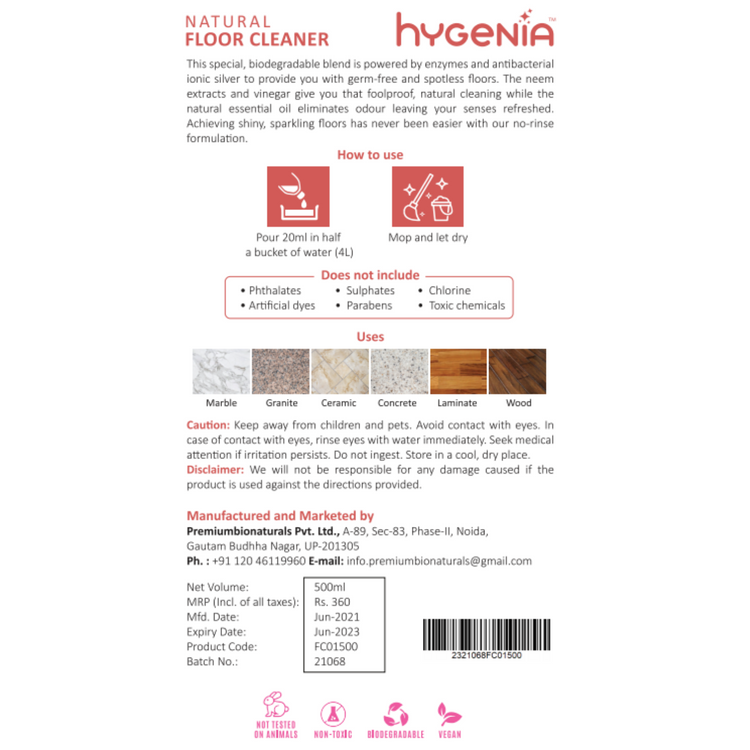If you grew up in an Indian household, you probably remember the sharp and pungent smell of phenyl —a staple that once reigned supreme in our cleaning routines for most of the household. Used mostly for mopping floors and disinfecting bathrooms, phenyl floor cleaner became synonymous with hygiene. But as we become more conscious of what’s safe for our homes, pets, and the planet, a big question arises: Is phenyl for floor cleaning still safe in today’s world?
But which one should you use? Let’s look into what phenyl for cleaning is and its growing concerns around its use, and how it is different against a new generation of natural floor cleaning solutions.

What is Phenyl?
Phenyl has been a traditional disinfectant in Indian households for years. It is a type of liquid which has phenol as the main element. It is commonly used to clean and disinfect floors.
-
The strong smell of phenyl can be unpleasant and may cause headaches or nausea for some individuals.
-
Phenyl contains phenolic compounds that are toxic and can be harmful if ingested, inhaled, or if they come into contact with skin. This poses a risk to children and pets.
-
The production and disposal of phenyl can contribute to environmental pollution, particularly water contamination.
Why is it so Popular?
-
Fast on visible dirt and viruses.
-
Offers deodorising properties.
-
Low-Cost
Concerns Around Phenyl Use
“Independent study reveals that ordinary phenyl kills less than 50% of germs and leaves your home at risk!”
Some of the concerns are:
-
Releases strong chemical fumes that may irritate eyes and lungs.
-
It can be harmful to pets, especially if they walk on just-mopped surface

-
It is not biodegradable, it can affect water systems.
-
Prolonged use can cause allergic reactions.
-
With toddlers crawling around and pets licking surfaces, the chemical residue from phenyl floor cleaner raises genuine safety concerns.
Rise of Natural Floor Cleaners

In response to health and sustainability concerns, natural floor cleaner options are now gaining popularity—and for good reason.
-
Made from plant-based enzymes, essential oils, and biodegradable ingredients.
-
Free from harmful chemicals, synthetic dyes, and artificial fragrances.
-
Safe for babies, pets, and people with sensitivities.
-
Ideal as a natural wood floor cleaner due to their gentle formulation.
Recommended Options:
-
Try our Sweet Orange Natural Floor Cleaner for a refreshing citrus clean.
For a calming fragrance, the Lavender Natural Floor Cleaner is equally effective and soothing.
When it comes to safer daily cleaning, the best natural floor cleaner easily rivals traditional phenyl for cleaning, without the toxic aftermath.
Cleaning Power: Phenyl vs. Natural Cleaners
Let’s break down how phenyl floor cleaner compares to natural floor cleaning solutions in actual performance.

Head-to-Head:
-
Grease & grime: Phenyl wins on speed, but natural cleaners break down build-up without residue.
-
Odour control: Phenyl masks odours, while natural cleaners neutralise them.
-
Disinfection: Both clean well, but natural variants offer antimicrobial action using safe ingredients.
-
Surface impact: Phenyl may corrode or dull surfaces over time. Natural floor cleaner preserves finish, especially on wood and tiles.
If you’re looking for effective cleaning without long-term side effects, natural floor cleaning solution is a smarter, safer pick.
Why People Are Making the Switch
A shift is underway. More people, especially millennials, are replacing harsh cleaners with natural floor cleaner alternatives.
-
Awareness around phenyl for cleaning and its health risks.
-
Desire for child- and pet-friendly homes.
-
Eco-consciousness and biodegradable product demand.
-
Availability of high-performing natural floor cleaning solutions at reasonable prices.
Explore how eco-friendly floor cleaners can be safe for crawling babies—you’ll understand why families are switching fast.

Making the transition to a natural floor cleaner isn’t just a trend—it’s a lifestyle change prioritising health and sustainability.
Frequently Asked Questions:
Q1) Is phenyl safe to use daily in homes with children or pets?
A) It can be toxic to your dog if he ingests them or if he comes into contact with them
Q2) Can natural floor cleaners disinfect as effectively as phenyl?
A) Yes, Use our natural floor cleaner , which is good for the environment and is efficient in cleaning floors.
Q3) What are the side effects of using phenyl regularly?
A) It may cause dizziness, drowsiness and headache.
Q4) Are there plant-based alternatives that remove stains and kill germs?
A) Plant-based cleaners are formulated using ingredients derived from plants rather than synthetic chemicals. These ingredients are often combined with other natural substances to create powerful, eco-friendly cleaning solutions.
Q5) How do I switch from phenyl to a natural floor cleaner without losing cleaning strength?
A) To switch from phenyl to a natural floor cleaner without losing cleaning strength, focus on utilizing vinegar, baking soda, and essential oils for cleaning and disinfecting.
So, is phenyl for cleaning still safe? Technically, yes—if used with caution. But in today’s world, where indoor air quality, child safety, and environmental impact matter more than ever, wouldn’t you rather switch to a cleaning solution that ticks all the boxes?
Give your home a clean you can feel good about. Explore the best natural floor cleaner options from Premium Bionaturals right here and here.
Let’s clean smart, not just hard.














